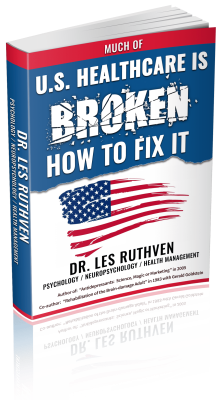Last updated on January 8th, 2024 at 10:06 am
Medscape psychiatry review of “Ketamine No Better for Depression than Placebo”
Ketamine is a dissociative anesthetic that has hallucinogenic effects and makes one feel disconnected and lacking personal control, much like many of the street drugs today. The patient under major surgery with Ketamine feels detached from the pain and the environment.
The drug often produces hallucinations and may cause side effects such as agitation, which is a most serious side effect, depression, impairment of brain functions, unconsciousness, amnesia and others. It is difficult to believe a drug with such side effects would gain FDA approval.
Ketamine joins a dozen of former and current hallucinogenic street drugs that have invaded mainstream medicine in recent years to treat so called resistant-depression as well as many other mental disorders.
These drugs, which are now claimed to be breakthroughs, have entered the scene because non-hallucinatory psychiatric drugs have not proven very effective against their placebo counterparts and psychiatry is looking for a better outcome with these newer hallucinogenic drugs.
Modern psychiatry for the past 50 years or so has convinced mainstream medicine, the court system and the general public that depression and other mental disorders are brain diseases, which impact putative neurotransmitters such as dopamine, serotonin and others, the theory being that these drugs restore normality to the brain!
The author of this article might ask of modern drug psychiatry “How these hallucinogenic breakthrough drugs square with psychiatry’s conception that mental disorders are basically diseases of the brain and that these drugs restore normal brain functions? In doing this isn’t psychiatry adding a brain impairing drug to a depressed patient’s brain that is already impaired by the depression?
Thus far psychiatry has remained silent on the matter of exactly how can a hallucinogenic drug restore normal brain functions. Leaving aside such issues let’s look at the study being considered.
The investigators took 40 individuals with a diagnosis of Major Depressive Disorder (MDD) who were facing non-cardiac and non-intracranial surgery; the subjects were randomized to either injected Ketamine or injected saline solutions while both groups had a general anesthetic for surgery.
One day after surgery all subjects were given the Montgomery-Asberg Depression Rating Scale (MADRS) and the major finding was that Ketamine was no more effective than placebo (saline injections) in reducing major depressive symptoms in surgical patients with MDD. The measures broke down as follows.
- MADRS depression scores decreased in the Ketamine group 25 to 12.6 points vs. 30 to 15.3 points in the placebo group, which is not statistically significant.
- Participants reported high rates of clinical improvement 60 % and 50% respectively and remission (60% and 35% respectively), again with no statistically significant difference between the two groups on any measure.
Both Ketamine and placebo groups showed a substantial reduction of depressive symptoms one day after surgery and the investigators attributed the improvement to a strong expectation in these depressed patients of the potential effectiveness of the treatment.
The writer in the above, as well as several hundred other such studies in the medical literature, is often struck not so much by what is reported in the conclusion section but what is omitted. I mentioned above that the findings did not support psychiatry’s belief that depression is primarily a disease of the brain—which psychiatry believes should be the primary focus of the treatment—and not what most psychologists believe that depressive symptoms arise from personal and distressing psychosocial factors operating in the patient’s current life and behavior.
The two professions are working poles apart, psychiatry working on backend treatment by addressing and treating the brain while psychology is attempting to determine the causes of this patient’s depression (or other mental disorder) and find ways to bring about behavior change to treat the depression such as Cognitive Behavior Therapy (CBT).
Aside from the question of which camp is right, front end vs. back end treatment of depression, the medical profession, the court system (The judge rules the defendant must stay on medication) and society as a whole sides with those who believe that medication is the primary and often sole treatment of depression and other mental disorders as well.
I must admit that the writer has a problem accepting the idea that a brain impairing psychiatric drug is an effective treatment of patients whose distressing symptoms are already impairing their brain!
These patients may be a little better in the short term because the brain impairing drug makes it more difficult for the patient to focus on what is giving rise to their symptoms; however, the brain impairing drug also hampers the patient’s recovery due to the patient’s difficulty to learn ways of solving their life problems.
This situation may relate to the fact that psychiatric drug treated patients have more relapses of depression than those treated with placebos.


